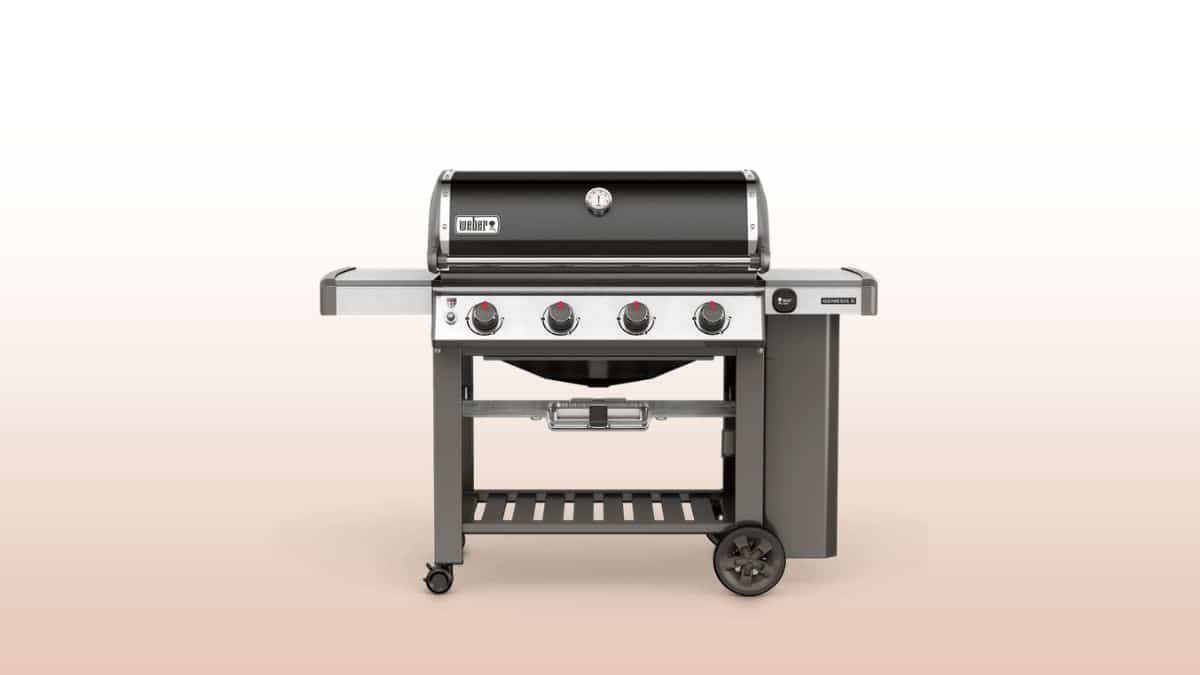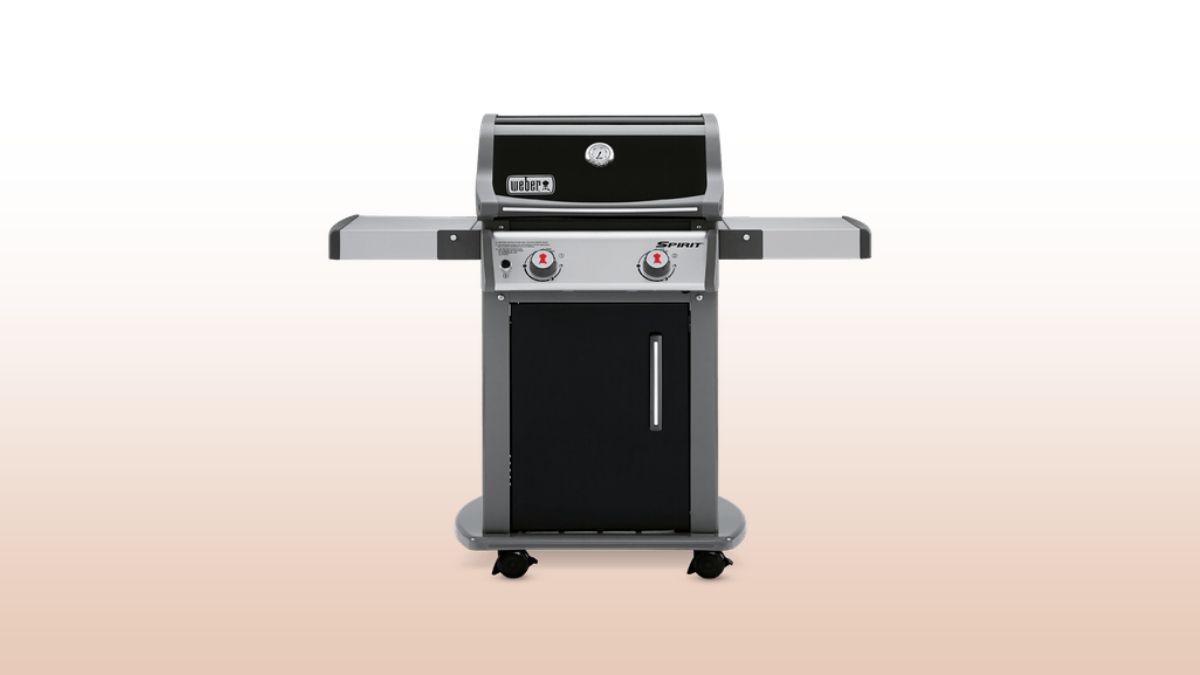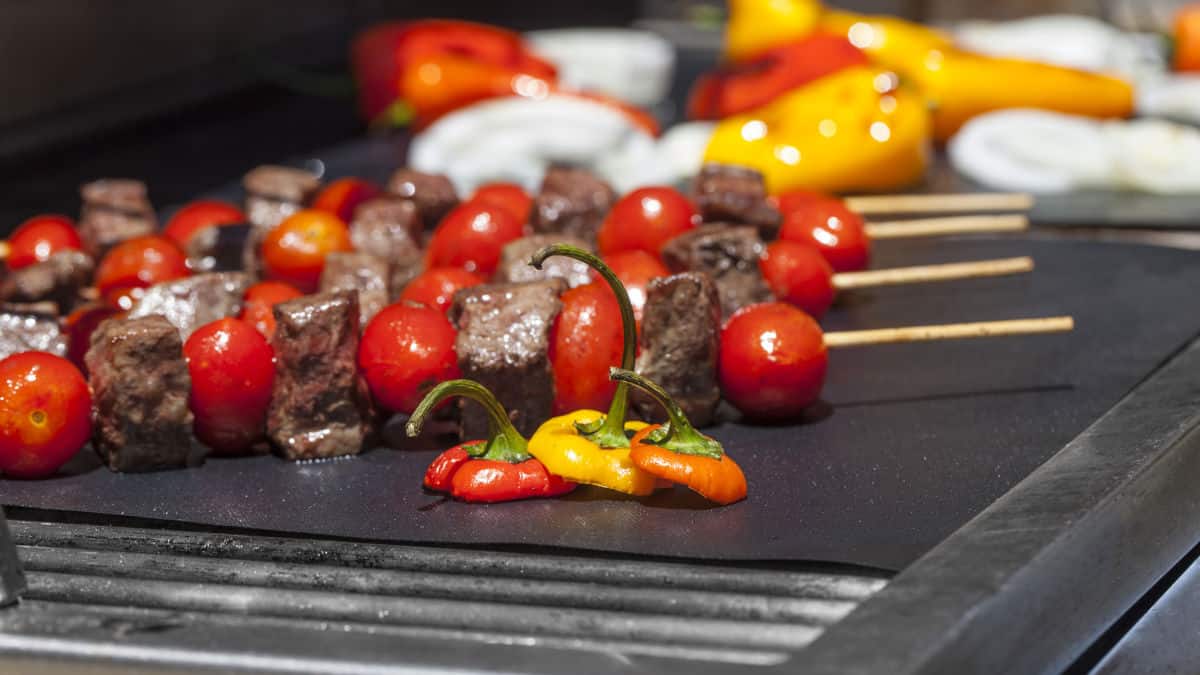If you’re on the hunt for the easiest-to-use, most convenient grill, you’re faced with two options: Electric and gas.
So, which will it be?
If you like grilling over an open flame, a gas grill might be the obvious choice; however, you shouldn’t write off the electric option just yet.
We’re comparing these two grill types in our ultimate electric vs gas grill battle in today’s article.
We’re going to pinpoint strengths and weaknesses to see which grill makes it out on top — and which one would suit you the best, depending on your cooking style.
Without further ado, let’s get right to it!
Electric Vs Gas Grill Comparison
Knowing how the grills differ – apart from fuel source – is an essential step in buying the right one for you. So let’s look at all the important factors one should consider:
User-Friendliness
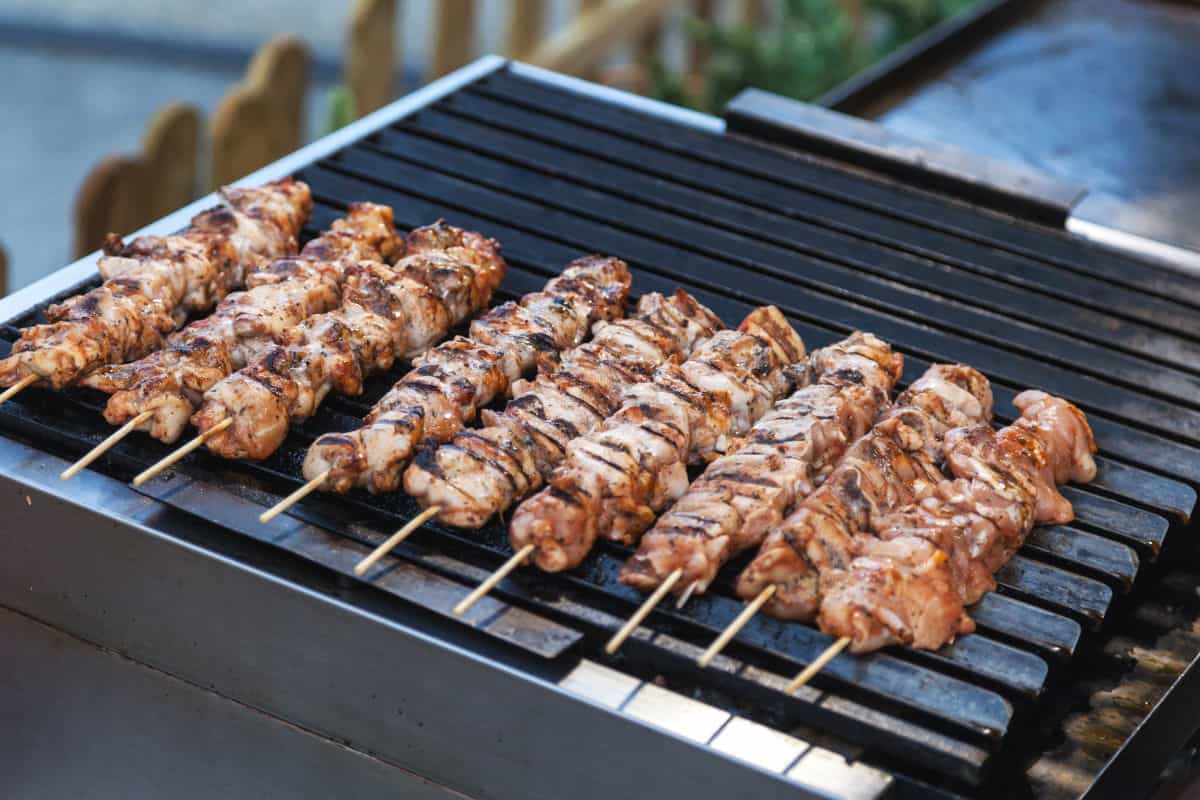
Electric grills are super easy to use — all you really need is a power outlet, and you’re ready to go.
If you know how to use an electric stove, you’ll do just fine with an electric grill — simply adjust the dial to suit the temp you’re going for.
There’s a slight learning curve to overcome when using gas grills, mostly setting the burners to suit different types of cooking methods.
Gas grills are generally ignited using a built-in ignition system, so all you have to do is push a button and turn a knob.
If you’re looking for the most easy-to-use grill, electric is ideal. Though both an electric or gas grill are incredibly easy to use.
Versatility
Electric grills are quite limited when it comes to cooking methods. They can reach searing-high temperatures and low temps; however, you won’t be able to smoke.
Gas grills offer slightly more versatility, especially if your grill is fitted with more than one burner. You can set up a two-zone grill with multiple burners, enabling you to cook larger cuts of meat. You can also utilize a gas grill for roasting or add a smoke box for extra deliciousness.
Due to the above, gas grills take the cake when it comes to versatility.
Temperature Range
Most electric grills have a low setting of 250 degrees Fahrenheit, which is ideal for regular grilling. The other side of the spectrum varies significantly, depending on the grill you have.
Some electric grills have a maximum temperature of 500 degrees Fahrenheit, while others can reach 600 degrees Fahrenheit — either one is good for searing, but go for the highest range if possible.
Gas grills usually have the same low setting as electric grills (250 degrees Fahrenheit). However, keeping the flames going at the lowest setting can be a challenge, and you have to keep an eye on the burners.
Regular gas grills can reach high temperatures between 500 and 550 degrees Fahrenheit. Moreover, if you want to achieve even higher temps between 700 to 900 degrees Fahrenheit, you should look for a gas grill with an infrared burner.
Both types of grills have extremely easy temperature control, simply turn a knob to the desired setting.
This round is a draw. Electric grills are superior for low-temp grilling, whereas gas grills are usually better for searing-high temperatures.
Quality of Finished Foods
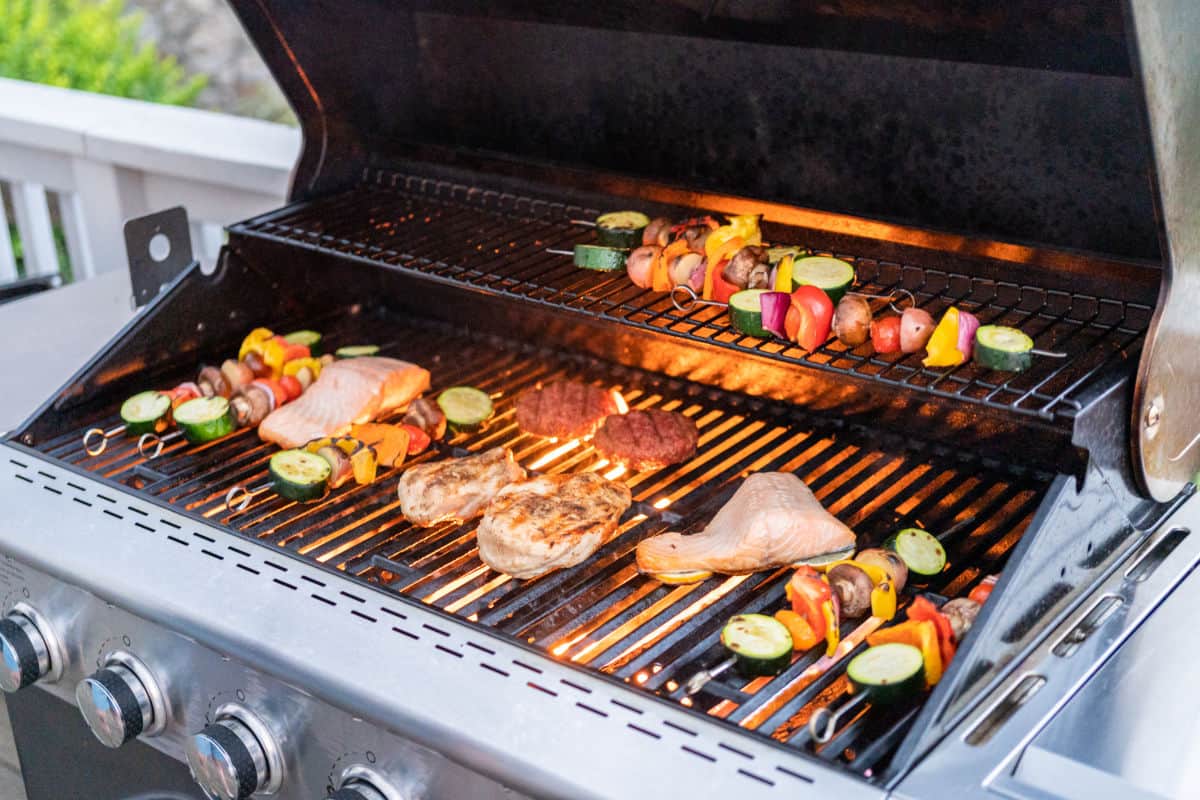
It’s very easy to get an electric grill to hold a particular temperature, making it even easier to achieve consistent results. However, the lack of an open flame also means there will be a lack of flavor when compared to using other fuel types, such as a charcoal grill.
Some grillers compare electric grills to kitchen stoves — and they aren’t entirely off.
When grilling on an electric unit, you need to make sure you season your food correctly to add to the flavor.
A gas grill requires slightly more practice; however, once you’ve grasped the art, it’s easy to produce consistent, delicious food. Despite the open flame of a gas grill, it won’t add much to the flavor, so you still have to be generous when seasoning.
In saying that, you will get slightly better results from a gas grill as it can reach higher temperatures faster.
So all in all, neither electric nor gas grills can compete with the flavor added by charcoal grills, while gas will add slightly more flavor than an electric grill.
Overall Size and Space Required
In general, electric grills are relatively compact — they don’t require much room for burners or charcoal, so they save space.
For an average electric grill, you’ll usually get about 240 square inches of cooking space packed into a 2-square-foot model. Some come with a stand and side shelves, so you need to consider this when planning where to install it.
Keep in mind that electric grills don’t come in monstrous sizes. They’re more compact, and it’s tricky to find a unit larger than 240 to 300 square inches of cooking space.
Gas grills come in a range of sizes — with a cooking area to match. The smallest model with only a single burner won’t need more than a few feet. Larger units with three to four burners will need a slightly bigger area.
Then there are the outdoor kitchen-style grills that are monstrous in size — these will usually include a vast cooking area, multiple burners, and workstations.
Reliability
Reputable brands such as Cuisinart, George Foreman, and even Weber all offer top-notch electric grills.
These brands do come at a price, but we think it’s worth it for the quality. Buying cheaper electric grills isn’t always a smart choice, and you’ll often end up with an unreliable grill.
We’ll say the same about gas grills — go with a good brand.
There’s always the chance of something breaking or not functioning correctly, but you want to make sure you can trust the manufacturer if it happens.
Due to the many electronic components of an electric grill, these are slightly trickier and pricier to fix if something were to break.
Weather Resistance
Straight to the point: You can’t operate an electric grill outdoors if the weather is terrible. Electricity and moisture don’t match — the same goes for freezing temperatures as well.
On a good note, you can use an electric grill in a garage or shed as they don’t emit dangerous gases, fumes or smoke.
If you’re a year-round griller, a gas grill is more up your alley. These are pretty much weather-resistant and can operate in any kind of weather. Give it a good wipe down before covering it up to avoid rust.
Maintenance Required
Caring for an electric grill is a breeze. There’s no need for scrubbing — simply wipe down the cooking surface and keep the unit dry.
Most units come with non-stick grates, making cleaning even easier as you don’t have to spend time scraping debris off.
Gas grills require slightly more attention.
First off, you have to burn and scrape off food residue, wipe the moisture away, check the burners and gas connections, look out for rust, and sometimes even spiders that could be residing in the tubes.
Initial and Ongoing Costs
Electric grills are relatively affordable, with cheaper models available at less than $100. It’s easy to find an excellent electric grill at the same price as a decent gas grill. In saying that, electric units can run up to the $1000s and more.
Although a gas grill’s average price is slightly higher than electric units, you get a much wider range of choice. These can also run up sky-high prices.
Because electric grills run on, well, electricity, the running costs depend solely on how much you pay for electricity in your area. This is where electric units can take the lead — if your home is running on solar panels, you could use your grill at absolutely no price.
Now, not all of us are living on solar cells, so this is what you typically can expect: If you pay 15 cents per kWh, you’ll pay around $0.25 per hour of cooking.
Hooking your gas grill up to your gas line at home will save you a lot. In fact, the average gas griller pays around $0.15 per hour when cooking. In saying that, you will need a professional to come to install your gas grill, and this ain’t cheap — you will, however, save in the long run.
Propane is another story — the average tank will last you about 10 to 20 hours of cooking, depending on the grill’s BTUs. You also have to replace the tank once it’s running low.
Summary Pros and Cons – And Which One Should You Buy?
Now that we’ve been through the facts about electric and gas grills, it’s time for quick pros and cons to highlight each grill’s strengths and weaknesses.
Electric Grills
If you were to go for an electric unit, here’s what you can look forward to:
Pros
- Plug it into an outlet and you’ll have endless fuel (unless there’s a power shortage).
- Incredibly user-friendly.
- Easy to maintain.
- Affordable costs (initial and long-run).
Cons
- No electricity, no dinner.
- You won’t get that authentic char or smokey flavor.
- Smaller cooking area than other grills.
- You can’t do two-zone grilling or roasting.
Gas Grills
Prefer to cook over an open flame? Here’s what to expect from a gas grill:
Pros
- Ready in a few minutes.
- Very versatile.
- You get smokiness and char.
- You’re able to cook in any weather.
Cons
- If you’re using propane, it will run out at some point, so you have to be ready with a replacement.
- It’s expensive to install a natural gas operating grill.
- Requires more maintenance and attention.
- Not as portable as electric models.
Who Won?
So in the electric grill vs gas grill battle, who won?
We must admit, both grill types have undeniable advantages — such as the ease-of-use you get from an electric grill or the range you get from gas grills. There’s something for every griller.
However, we must say that our overall winner is the gas grill. They combine reliability, versatility, affordability, and consistency of food — and it’s the results that matter the most in our book.
Which grill do you think is the overall winner? Let us know your thoughts in the comments below.


